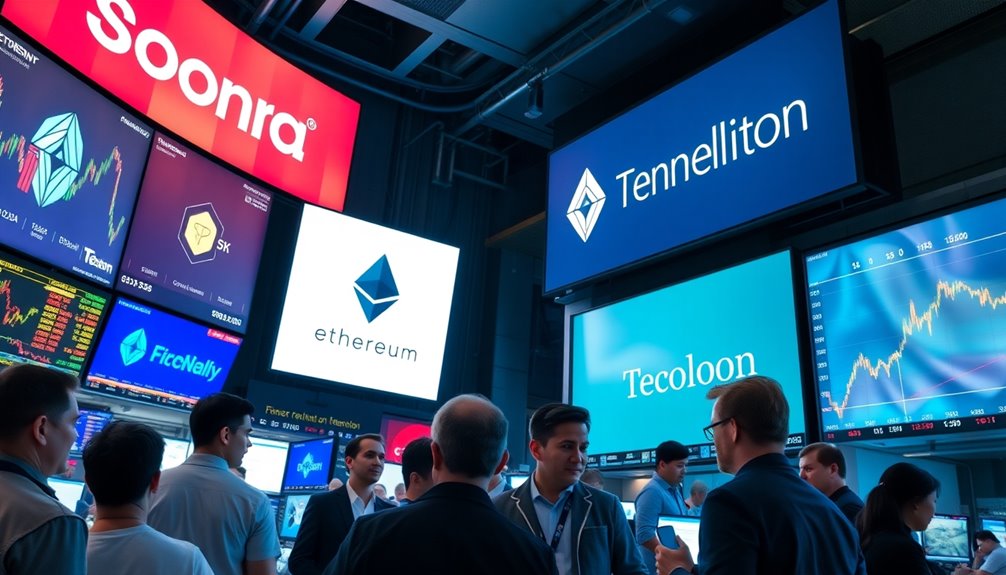As you observe the blockchain landscape, it's clear that Solana is gaining traction, particularly with Franklin Templeton's recent ETF filing. This move hints at a growing belief in Solana's capabilities, especially its fast transaction speeds and innovative Proof of History mechanism. With Solana now surpassing Ethereum in decentralized exchange volume, the competition is heating up. What does this mean for the future of DeFi and the established players in the market?

As Solana rapidly gains traction in the blockchain space, it's becoming increasingly clear that the competition with Ethereum is intensifying. You might notice that Solana's smart contract capabilities aren't just keeping pace; they're pushing the envelope, especially when it comes to transaction speed and cost.
While Ethereum has long dominated the market with a hefty market cap, Solana is narrowing that gap, thanks to its innovative Proof of History (PoH) consensus mechanism. This allows Solana to process over 2,600 transactions per second, making it a strong contender in the decentralized finance (DeFi) realm.
Solana's innovative Proof of History enables over 2,600 transactions per second, positioning it as a formidable player in DeFi.
In recent months, Solana's DeFi ecosystem has shown remarkable growth, even surpassing Ethereum's decentralized exchange (DEX) volume. As you follow the trends, you'll see that Solana has captured over 50% of the DEX trading market, a significant milestone that challenges Ethereum's long-standing dominance. Solana's DEX volume has grown significantly, establishing its presence as a key player in the DeFi space.
Although Ethereum still leads in Total Value Locked (TVL) and liquidity, Solana's rapid ascent suggests a shift in user behavior and preference, especially among investors looking for lower fees and faster transactions.
The interest from major players like Franklin Templeton underscores this momentum. Their recent ETF filing for Solana signals a growing confidence in its ecosystem, which they believe is undervalued compared to Ethereum's. With Solana's DeFi tokens trading at lower valuation multiples yet showing higher growth potential, it becomes clear why many investors are taking a closer look.
However, you should also consider the risks involved, including concerns about Solana's stability and security, which could impact investor confidence.
As you analyze the technological advantages, Solana stands out not only for its speed but also for its scalability and significantly lower fees. Upcoming upgrades, such as the Firedancer client, aim to enhance Solana's security and stability further.
Yet, to truly challenge Ethereum's dominance, Solana needs to attract a larger developer community, as Ethereum continues to benefit from established trust among developers.
The competition dynamics between Solana and Ethereum are shifting, and this trend is likely to continue. User activity on Solana is on the rise, and its DeFi ecosystem is poised for further growth, which could drive its price upward.
While Ethereum maintains a solid position due to its established ecosystem, the winds of change are blowing in Solana's favor. The market is watching closely as both platforms vie for supremacy in this rapidly evolving space.









